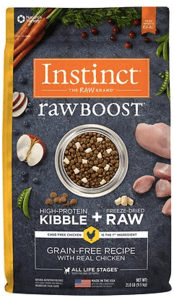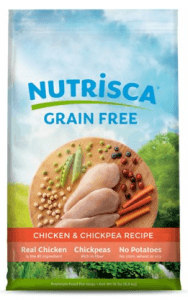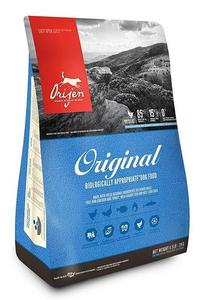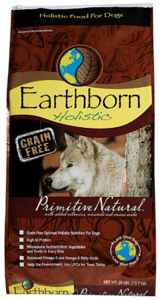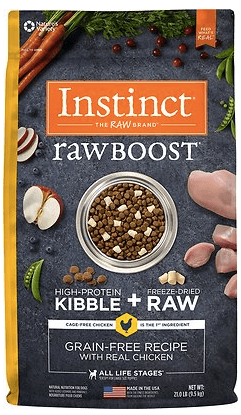What is the Best Dog Food for Chow Chows?
Hey guys! Here we are again with another review for what to feed out awesome, furry little friends. And in this case, we’re talking extra furry. We’re going to talk about the best dog food for Chow Chows. Chow Chows are known for their massive coats but they also have a very specific behavior that affects their diet. We’re going to tell you all about it!
Top Picks for Dog Food for Chow Chows
**There's more info below, but you can also click the links above to see current prices or read customer reviews on Chewy.com & Amazon.
How Many Calories Should Chow Chows Eat in a day?
**Please note: these estimates are based on an average weight for this breed. Every dog is different. Please talk to your vet before making changes to your dog's diet.
Chow Chows can grow anywhere between 40 and 70 pounds, and this depends on several factors. Mostly, it depends on the diet and activity level. Chow Chows are, by nature, low activity dogs. But we know that now all dogs are the same.
So let’s check out what the calorie intake should be for different Chow Chows. For a Chow Chow with a low activity level, their calorie intake should be about 1006 k/cal per day. For a moderately active Chow Chow, their calorie intake should be about 1230 k/cal per day. And finally, for a highly active Chow Chow, their calorie intake should be 1957 k/cal per day.
You really want to make sure you gauge your Chow Chows activity level properly, because just like with anything else, if they are over eating and not being very active, then they will be prone to weight gain. Additionally, although Chow Chows have been known to be aloof, they will still usually play with their owners. They will always have opportunities to get proper exercise if the owners take advantage of it.
All the foods we have recommended today would be great for your pup, but the Nature's Variety Instinct Raw Boost stood out to the editor. We stated earlier that it’s best to keep this dog’s diet as close to natural as possible.
The ingredients in this dog food closely resemble the ingredients that made up the original diet of this breed. That’s one of the main reason we like this dog food. It has chickpeas, light game, and tons of fruits and vegetables.
Also, looking at the label, the other ingredients in this dog food are really healthy. It has a ton of great stuff like apples, cranberries, healthy chicken fat, salmon oil, etc. There are plenty of things in this food that will help with the specific issues concerning the breeds hip dysplasia, such as healthy fats and oils.
What We Like & What We Don't
- This food is made in the USA with natural ingredients.
- This food is made with a diet closely resembling the original diet of the breed.
- This food is made with fiber to combat gastric cancer which Chow Chows are prone to.
- This food is slightly pricier than other, more generic foods.
- This food has been reported to cause minor stomach issues in a few instances.
Listen, there are tons of great foods out there for the Chow Chow, even beyond the five that we picked earlier. However, this one is just a great, natural choice that we think is good specifically for the Chow Chow. It’s made in the USA, it’s full of excellent, great, natural ingredients that will be both delicious, and work as a preventative treatment to some of the conditions know to effect the Chow Chow.
Have a Sec? Check Out This Video!
Want a rundown of Chow Chows in less than five minutes? Check out the video above! Not only does it give a complete rundown the behavioral traits, but it also gives you a quick history of the Chow Chows, who makes the best owners, and a few lesser known facts about the breed. Check it out!
A Bit of Nutritional Information About the Chow Chow!
Chow Chows, because they are such a specific type of dog, should have a diet that is as close to their natural diet as possible. Chow Chows first arrived in Tibet with the Mongols, and were exposed to a very diverse environment where they grew with a diverse, yet simple and healthy diet.
Main staples in their diet consisted of barley, peas, yak milk, beans, spinach, ground birds and water birds (roasted). They traditionally have a high card and high salt diet because of the harsh climates in Tibet.
So, what do we know about the diet so far? What do the Chow Chows need and what do they not need? Well, we know that too much protein can cause damage to their kidneys. Of course a good amount of protein is crucial, but it should not command the entire diet.
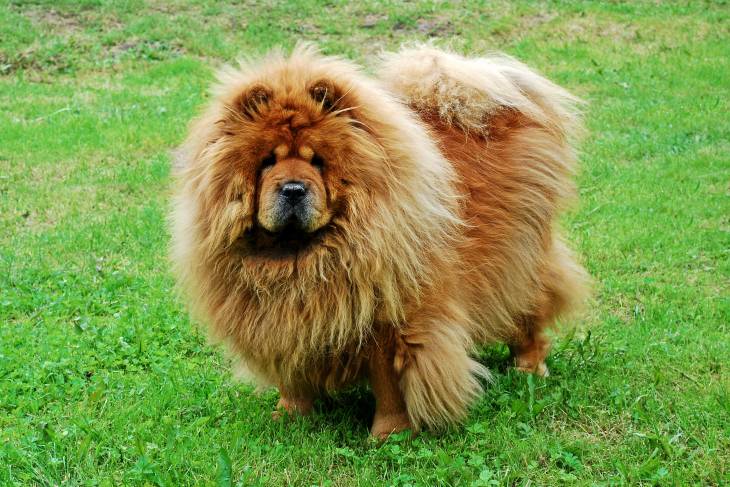
Next, we know that high salt has been a big part of their diet for generations, so a lack of salt can cause calcium to dissolve from the bones and cause arthritis, joint problems, digestive problems, and dehydration.
Too little fats can keep essential nutrients from being absorbed into the body. This can cause a ton of issues, such as: increased risk of cancer, hormone issues, skin issues, and stunted growth.
So we know what doesn’t work. What will work? Well, earlier we said that Chow Chows diets should be as close to their original diet as possible. These little facts confirm that, but we’re going to put a modern spin on it.
Here are a few staples that you should look for in the food you pick for your dog: brown rice, barley, oats, chickpeas, lentils, spinach, tomatoes, other green vegetables, also kelp. In terms of meat, don’t be afraid to go a little on the fatty side. But make sure the fats are healthy fats. Lamb is best, but you can always go for leaner sources of protein and get your fats from other areas.
Also, it’s always a good idea to rule out filler like wheat, corn, unspecified meat, etc. These are bad sources of fat.
Common Health Problems with Chow Chows
Chow Chows, like most breed dogs, have a wide range of issues they face, but only a few health issues that are prevalent in their breed. For starters, Chow Chows can suffer from a condition called: entropion. This is a condition that causes the eyelashes to move inward and irritate the cornea.
Entropion in Chow Chows is due to the extra skin on their face, causing them to have more than one layer on their eyelids.
Chow Chows also suffer from a condition called Canine Hip Dysplasia (CHD). This is common is several breeds, however, it’s a bit more common with Chow Chows due to their straight hind legs. They cause the thigh bone to not fit snugly into the hip joint. This can cause pain and lame hip.
Chow Chows also suffer from a range of other issues, such as: glaucoma, cataracts, lymphoma, diabetes mellitus, canine pemphigus, gastric cancer, and they are at a particularly high risk of autoimmune disease.
We love our (extremely) furry little pets, and we don’t want anything to happen to them, right? So how can we curb their diet to fight these conditions?
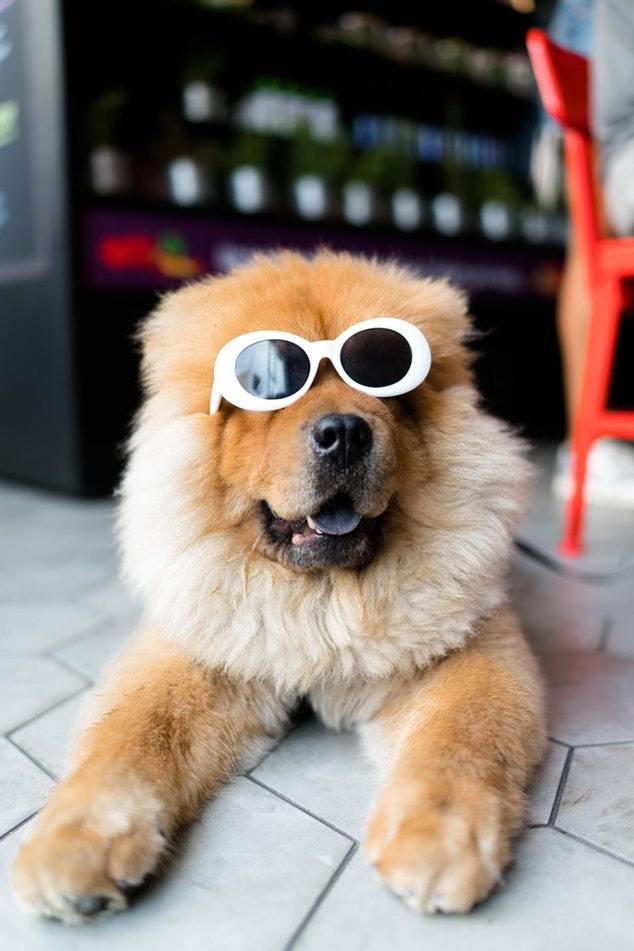
Well first, entropion is unfortunately unpreventable. It can only be corrected through surgery. It’s not something the diet of the dog can prevent. However, diet and exercise help keep the dog from gaining extra weight on the face, which is a reason for the entropion.
However, hip dysplasia can be prevented or at least treated with diet. Hip dysplasia tends to get much worst with weight gain, as the more weight that is put on the hips, the further the thigh bones are pushed out. Also, a poor diet can also leave to poor bone growth and other problems with joints and cartilage.
Further, if your dog is kept lean, especially during his early years, they have a reduced risk of getting hip dysplasia. So keeping your dog on a healthy diet really is step one for preventing this condition. Look for foods with antioxidants, also food with vitamins E and C. Additionally, (especially during the early years) make sure to feed your dog plenty of lean meats, but don’t neglect the healthy fats from vegetables.
Feeding Your Chow Chow Puppy!
After your Chow Chow is over a year old, you can be a bit more lenient with how many times you feed the dog, but many people like to stick with 1-2. The main thing is to be consistent. But what about the most crucial growth stage, 0-52 weeks?
During the puppy phase you want to feed your puppy small amounts of food, 3 times per day. When we say small amounts, you probably want to shoot for about 280-300 k/cal per day broken into three meals. This is just for the very early stages (when the dog is 10 lbs). Once the dog reaches around 20 lbs you can ramp up the intake to 470 k/cal per day, and when the dog is 30 lbs you can take it to 640 k/cal per day.
Once the dog is larger than that and reaches 40 lbs, you can refer to our section under “Calorie Requirements for Chow Chows.” But as always, these requirements also depend on your dog’s energy level.
Once your dog reached full grown age, a lot of people like to feed their dog once good meal a day with all of its caloric needs in one meal. However, you can also split this into two meals as a lot of people often do.
20% off at chewy.com
On ALL Dogfood

**Disclaimer: Our dog food reviews are based mostly on (1) our expertise and that of the experts with whom we consult and (2) the information provided by the manufacturers. We do test many dog foods (with our dog's help), but we can't test them all. As such, please remember the above recommendations are our opinions, and you should consult your vet before making changes to your dog's diet.


